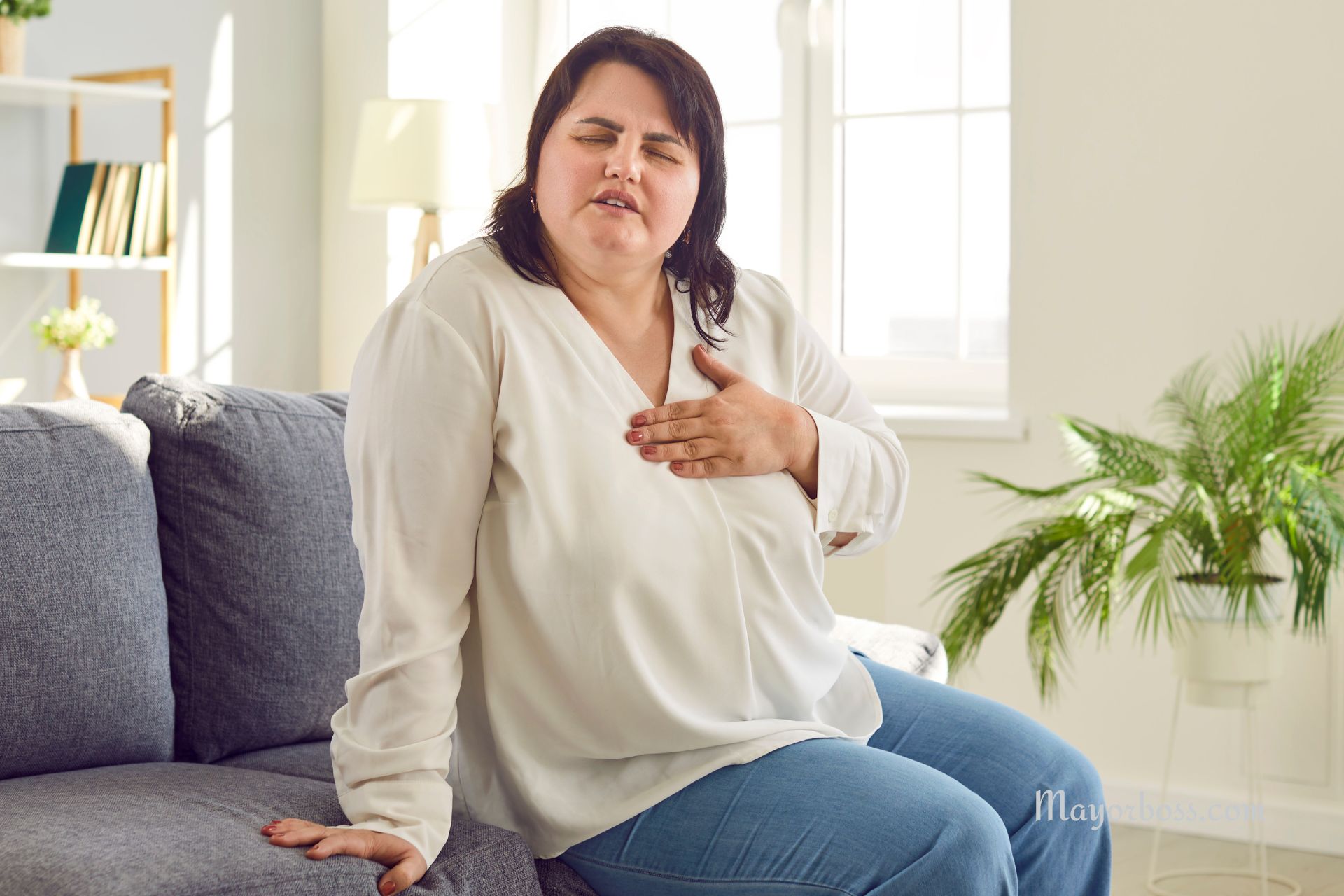Pulmonary Edema Symptoms: 5 Warning Signs That Indicate Your Lungs Might Be in Danger
Pulmonary edema happens when fluid leaks into the air sacs of your lungs. Air sacs, also known as alveoli, are tiny bubbles where oxygen goes into your blood. When fluid fills these bubbles, less oxygen reaches your body. This condition can start quickly or slowly over time. When it starts quickly, it is called acute pulmonary edema, and it is an emergency. If it happens slowly, it is called chronic pulmonary edema and is usually linked to long-term health issues.
As stated by pulmonologist Isabel Bazan, MD on Yale Medicine, “Fortunately, pulmonary edema is a reversible condition, and the faster it is treated, the better the outcome is likely to be,” With that said, this article explains the five warning signs that could signal pulmonary edema and the need for immediate medical attention.

1. Shortness of Breath
The first warning sign of pulmonary edema is shortness of breath. This means you may feel like you cannot catch your breath, even when you are doing simple activities. You might feel more breathless when you lie down. Many people with this problem need to sleep with extra pillows to help them breathe better. When the lungs fill with fluid, there is less room for air. This makes every breathless effective. If you suddenly have trouble breathing, you should see a doctor right away.
2. Wheezing and Coughing
Another sign of pulmonary edema is wheezing. Wheezing is a high-pitched sound that happens when you breathe out. It happens because the air moves through smaller spaces in the lungs. Along with wheezing, a person may start coughing. Sometimes the cough produces frothy sputum, which is a mix of air and liquid that looks bubbly. Other times, the cough might be dry and tickly. These sounds and coughs happen because the extra fluid makes it hard for the lungs to clear out the air. If you hear wheezing or start coughing a lot, it is a sign that you need medical help.
3. Chest Pain or Tightness
Chest pain or a feeling of tightness in the chest can also be a warning sign of pulmonary edema. This pain might feel like a heavy weight on your chest. Sometimes, the pain can even spread to your arms, neck, or jaw. Chest pain is not only a sign of lung problems; it can also mean there is an issue with your heart. The heart and lungs work closely together. Many people with pulmonary edema also have heart problems, such as heart failure. If you feel pain or tightness in your chest, do not wait. It is important to get checked by a doctor quickly.
4. Rapid Weight Gain
A sudden gain in weight can be another clue. When your body holds on to extra fluid, you might notice your weight goes up fast. This fluid buildup does not just happen in your lungs; it can happen in other parts of your body too. For example, you might see swelling in your legs, ankles, or feet. Keeping track of your weight every day can help you notice this change. If you see a quick increase in your weight, it might mean that your body is retaining too much fluid. This is a sign that you need to talk with your doctor.
5. Feeling Very Tired and Confused
When your lungs do not work well, your body does not get enough oxygen. This lack of oxygen can make you feel very tired. It can also make it hard to think clearly. You might feel confused or have trouble remembering things. These symptoms mean that your brain is not getting enough oxygen. Fatigue and confusion can be serious. If you feel very tired and confused, along with other symptoms like shortness of breath or a cough, you should seek medical help right away.
When to Get Medical Help
You should see a doctor as soon as you notice any of these signs. Pulmonary edema can get worse very fast. If you have trouble breathing, hear wheezing, feel chest pain, gain weight quickly, or feel very tired and confused, you need to get help. Early treatment can save your life. Doctors may use treatments like oxygen, medicines to remove extra fluid, or other methods to help you breathe better and get more oxygen into your blood.
Taking Steps to Stay Healthy
After you have been treated, managing your health is important. Many people with pulmonary edema need to make changes in their daily habits. These changes can include eating less salt, watching their weight, and staying active. Salt can make your body hold on to extra water, so eating less of it can help reduce fluid buildup. Regular exercise helps your heart and lungs work better. Following your doctor’s advice on medicines and lifestyle changes is key to keeping your lungs and heart healthy.
